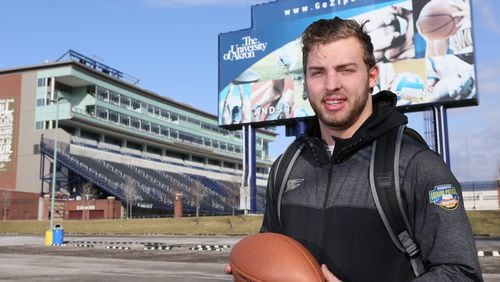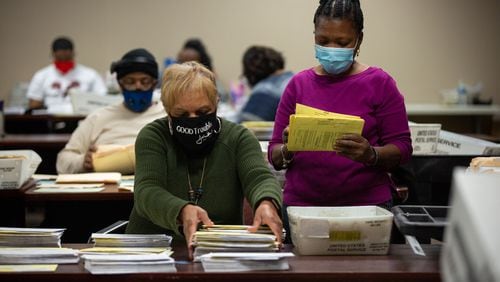It was to be the crowning achievement of his young life, the fulfillment of a goal 14 years in the making. A year earlier, Brian Bell signed a letter of intent to play football at Florida State University. The team’s head coach, Jimbo Fisher, had personally courted the promising linebacker.
But as last year’s National Signing Day approached, Fisher called Bell’s coach at Lowndes High School and said the university would not allow him to give Bell a scholarship. Bell was in. Then he was out. The young player’s options were dwindling. LSU and Florida, he said, had once expressed interest but now told him they were worried his presence would divide the locker room.
“Every time there was a rumor I was going somewhere (people on) Twitter would hound the schools, the coaches, telling them I was a murderer,” he said. “I couldn’t escape it.”
Bell had become toxic. And his name remains sullied to this day, linked to the tragic death of Kendrick Johnson, 17, whose body was found in a rolled-up gym mat at Lowndes High in Valdosta in 2013. Johnson’s family believes Bell and his brother, Branden, had something to do with Kendrick’s death.
But Brian’s attorney, Jason Ferguson, said the FBI has told him it has cleared his client of any involvement. The FBI will not publicly confirm that it’s no longer investigating Bell. The man who pushed for that probe, U.S. Attorney Michael Moore, resigned in November to join an Atlanta law firm. And the matter has since been transferred, without explanation, to the U.S. attorney’s office in the Northern District of Ohio. Neither Moore nor the federal prosecutor in Ohio would comment on the case.
Brian Bell eventually landed a football scholarship at the University of Akron, a Division I school in northern Ohio.
“It definitely raises an eyebrow because that is now home for Brian Bell,” Marcus Coleman, a spokesman for Kendrick’s parents, said of the transfer of the case to Ohio.
“He has not been cleared by the U.S. Department of Justice,” Coleman said. “No one has been cleared.”
But 27 months and two grand juries after the federal investigation began, no charges have been filed. Publicly, at least, no evidence has surfaced that links the Bells to Johnson’s death. Witnesses and surveillance footage place the brothers away from the old gymnasium at Lowndes High where, on Jan. 10, 2013, Kendrick was last seen alive. Branden Bell, according to teammates, his coach and the bus driver, was en route to a wrestling tournament in Macon at the time.
“It was something so stupid we thought everyone would laugh it off,” Branden Bell said. “How could I be in two places at once?”
A strange and tragic death
Kendrick’s body was found Jan. 11, upside down in a 6-foot-high cheerleader’s mat that was rolled up and stacked vertically among at least a dozen others. Local and state investigators concluded he died of “positional asphyxia.” They believe Kendrick became trapped in the mat while reaching for a pair of sneakers at the bottom. A terrible accident, to be sure, but an accident all the same.
Kenneth and Jacquelyn Johnson have never bought that theory about their son’s death. In a wrongful death lawsuit, they allege that Kendrick was beaten and stuffed into the mat by the Bell brothers and a third boy. A massive cover-up to protect the killers ensued, the suit alleges, involving the Lowndes County sheriff, school superintendent, the GBI and the state medical examiner’s office. A private autopsy performed for the Johnsons suggested Kendrick’s death was caused by blunt force trauma.
Both the Johnsons and the Bells are desperate for closure. So is Valdosta, which has become bitterly divided by the case, largely along racial lines. Kendrick was black, the Bell brothers are white.
But answers may never come. Moore, the U.S. attorney who had championed the criminal investigation, left office without releasing findings from the FBI’s review of school surveillance video, as he had told the Johnsons he would do, according to Coleman. Their lawyers had alleged the footage may have been doctored by state and local investigators.
In addition, the results of a second official autopsy, conducted by Maryland’s Chief Medical Examiner David Fowler, also remain under wraps.
And even if the FBI has cleared Bell, that doesn’t necessarily mean federal prosecutors have.
“The law doesn’t require them to say, ‘It’s over,’” Ferguson, Brian Bell’s lawyer, said. “If the facts led to some conclusion, we need to know that.”
‘Serious abuse of authority’
Some outside observers find the conduct of the case unusual.
“What the hell is going on down there?” said Geoffrey Hazard, a professor emeritus at Yale Law School and one of the country’s leading legal ethicists. “This sounds like a serious abuse of authority.”
Hazard said the federal government has no jurisdiction to conduct a murder investigation. A few months before Moore opened his review of the case, the U.S. Justice Department declined a request to open a civil rights investigation into Johnson’s death, saying it had reviewed the case file and did not see “sufficient indication of a civil rights violation.”
“What changed? What is the federal crime here?” Hazard said.
Moore has repeatedly declined to answer those questions, citing the ongoing investigation.
But Benjamin Crump, former co-counsel for the Johnsons, told The Atlanta Journal-Constitution last year that Moore told the couple he was convinced Kendrick didn’t die accidentally.
A fight between friends
It all started with a fight on a school bus, more than a year before Johnson’s death. According to Brian Bell, then a freshman, the scuffle on the bus with teammate KJ was over something minor, forgotten the next week.
But after Kendrick’s death, the fight would be framed far more dramatically — a prelude, the Johnsons and their supporters allege, to murder.
The accusation would first surface three days after Kendrick’s body was discovered. In a YouTube video posed Jan. 14, 2013, Eddie Tooley, KJ’s grandfather, discussed the family’s suspicions, saying, “They heard this had something to do with a GBI agent’s son who had an altercation on the bus some time ago.”
Rick Bell, Brian’s father, is an FBI agent. The Johnsons’ suit casts Bell as a puppet master of sorts who once challenged Kendrick to come over to the Bells’ house to fight his son. Later, the suit alleges, Rick Bell assisted in the cover-up.
But what is the source of this information?
Last fall, the Justice Department sought to delay the exchange of evidence — known as discovery — in the Johnsons’ lawsuit, as well as in a countersuit filed by the Bells. Release of any evidence might compromise the federal investigation of Kendrick’s death, the government argued. But the judge disagreed.
“This investigation has been going on for two years, and there is no indictment,” said South Georgia Circuit Superior Court Judge J. Richard Porter, ruling against the federal government. “It would not be appropriate to intervene without an indictment.”
In a hearing in Lowndes Superior Court in November, Tim Tanner, legal counsel for the city of Valdosta, a defendant in the wrongful death suit, presented sworn testimony from Kenneth Johnson acknowledging that he had no evidence that his son was murdered.
“I believe they have – they have – Brian and Branden had a lot to do with my son’s death,” Johnson testified.
When pressed, Johnson said, “The evidence that I have at this time, I do not have any at this time.”
The other conspiracy?
Taylor Eakin, Brian Bell’s girlfriend, was 16 when she was called before a federal grand jury in April 2014.
“I had no idea what was going on,” she said.
But the line of questioning was intense and deeply personal, Eakin recalls. She was asked whether Brian used steroids and whether she was intimidated by his size. Had he ever hit her? Were they sexually active? Would she ever date an African-American? And how well did she know Kendrick? Were they more than friends?
The significance of that last question became apparent when the Johnsons filed their wrongful death lawsuit in January 2015. They allege that a Jane Doe, later identified as Eakin, lured Kendrick into the gym so the Bells and a classmate could attack him.
Eakin said it didn’t take long to figure out that prosecutors believed she had slept with KJ, which she denies, and that the purported ambush was payback.
But according to Eakin, she didn’t start dating Brian Bell until three months after Johnson’s death.
“How could I have cheated on Brian if we weren’t dating at the time?” Eakin told The Atlanta Journal-Constitution. “And how are (prosecutors and the Johnson’s attorneys) all on the same page when it’s not the truth?”
Death threats continue
In the meantime life in Valdosta had become a struggle for Eakin and the Bells. Death threats continue to this day — more than 100 have been turned over to the FBI, said Brian’s mother, Karen Bell — such as this one posted on her youngest son’s Instagram page a few weeks ago:
“We see u in Canada. And my dads from Memphis anyway so I might come see u and did u like u did Kendrick.”
Brian enrolled in a work-study program his senior year, spending only half a day on campus, where he became a pariah.
“Two kids on the football team said they were going to jump me,” he said. “People who knew me for years started believing it.”
His parents moved out of state and, because of the death threats, are under the protective custody of the FBI. Brian’s mother, Karen Bell, said they’ll likely move again, off the grid where they’ll be difficult to track.
“I always have my .38 ready,” she said. “You never know.”
Coming Monday: A deeply divided Valdosta deals with the aftermath of KJ’s passing.







